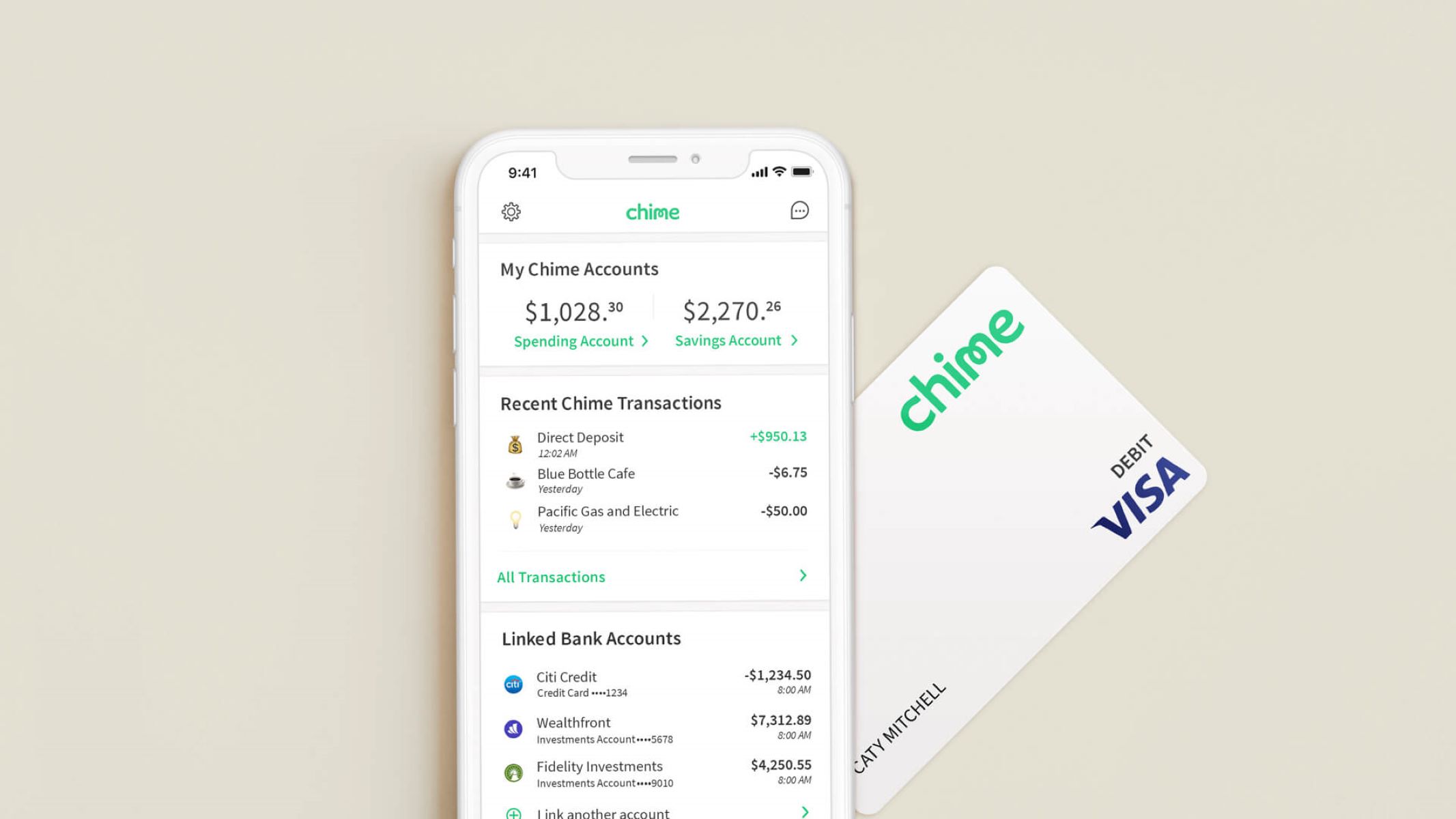Home>Finance>How Can I Build Credit If I Can’t Get A Secured Card With My Own Money?


Finance
How Can I Build Credit If I Can’t Get A Secured Card With My Own Money?
Published: March 1, 2024
Learn effective strategies to build credit without a secured card. Discover alternative finance options to improve your credit score.
(Many of the links in this article redirect to a specific reviewed product. Your purchase of these products through affiliate links helps to generate commission for LiveWell, at no extra cost. Learn more)
Table of Contents
**
Introduction
**
Building credit is a crucial step toward achieving financial stability and independence. A strong credit history not only facilitates access to loans, credit cards, and favorable interest rates but also reflects a responsible financial track record. However, the catch-22 situation of needing credit to build credit can be frustrating, especially when traditional credit-building options such as secured credit cards seem out of reach. Fortunately, there are alternative pathways to establish and enhance your credit profile. This article delves into innovative strategies that can help you build credit, even if obtaining a secured card with your own funds is currently unattainable.
Navigating the world of credit can be daunting, especially for individuals who are new to the financial landscape or have encountered setbacks in the past. The lack of a robust credit history can hinder opportunities for securing loans, renting an apartment, or even obtaining favorable insurance premiums. This underscores the importance of proactively establishing a positive credit record. By exploring unconventional methods and lesser-known avenues for building credit, individuals can break free from the constraints of traditional credit-building approaches and forge a path toward financial empowerment.
In the following sections, we will delve into creative solutions that can empower individuals to kickstart their credit journey. From leveraging the credit of a trusted individual to harnessing alternative credit-building products, this article aims to equip readers with actionable insights and strategies to establish a solid credit foundation. By embracing these innovative approaches, individuals can pave the way for a brighter financial future, unimpeded by the limitations of conventional credit-building methods.
**
Understanding the Importance of Building Credit
Building a strong credit history is akin to laying a solid foundation for your financial future. Your credit score, derived from your credit history, plays a pivotal role in various aspects of your life, including your ability to secure loans, rent an apartment, and even land certain job opportunities. A robust credit profile reflects your financial responsibility and reliability, signaling to potential lenders and creditors that you are a low-risk borrower.
When you have a positive credit history, you are more likely to qualify for loans and credit cards with favorable terms and lower interest rates. This can translate into substantial savings over time, as you’ll incur less interest on borrowed funds. Moreover, a healthy credit score can enhance your prospects for securing a mortgage, allowing you to realize the dream of homeownership.
Furthermore, many landlords and property management companies conduct credit checks as part of their tenant screening process. A strong credit history can bolster your chances of securing a desirable rental property, as it demonstrates your financial reliability and trustworthiness. In some cases, a poor credit history may even result in the denial of a rental application, making it challenging to find suitable housing.
Employers in certain industries may also review credit reports as part of their hiring process, particularly for roles that involve financial responsibilities. A positive credit history can enhance your employability and may even open doors to opportunities that require a high level of financial trust.
Understanding the significance of building credit underscores the importance of exploring alternative avenues for establishing a credit record, especially when traditional methods are inaccessible. By proactively working to build and maintain a positive credit history, individuals can unlock a myriad of opportunities and pave the way for a more secure and prosperous financial future.
Exploring Alternative Credit Building Options
When traditional credit-building options such as secured credit cards are not viable, it’s essential to explore alternative pathways to establish and enhance your credit profile. Fortunately, several innovative strategies can help you build credit, even in the absence of a secured card with your own funds. These alternative credit-building options are designed to provide individuals with opportunities to demonstrate financial responsibility and reliability, paving the way for a robust credit history.
One effective approach is becoming an authorized user on someone else’s credit card. By leveraging the credit history and responsible credit utilization of a trusted individual, such as a family member or close friend, you can benefit from the positive reporting of the account to the credit bureaus. As an authorized user, you can potentially build or improve your credit score based on the primary cardholder’s responsible credit management.
Another avenue to consider is applying for a credit builder loan. These specialized loans are structured to assist individuals in establishing or rebuilding their credit. Unlike traditional loans, the funds from a credit builder loan are typically held in a savings account or certificate of deposit (CD) while you make regular payments. Once the loan is repaid in full, you receive the funds, and the positive payment history is reported to the credit bureaus, contributing to the enhancement of your credit profile.
Additionally, certain services enable individuals to have their rent and utility payments reported to the credit bureaus, providing an opportunity to bolster their credit history through regular, on-time payments. By enrolling in these programs, you can harness the positive payment history associated with your recurring expenses to strengthen your credit profile, even without traditional credit accounts.
Exploring these alternative credit-building options empowers individuals to take proactive steps toward establishing a solid credit foundation, even in the absence of conventional credit products. By leveraging these innovative strategies, individuals can lay the groundwork for a positive credit history and expand their financial opportunities, irrespective of the limitations posed by traditional credit-building methods.
Becoming an Authorized User on Someone Else’s Credit Card
One effective strategy for building credit, especially when traditional credit-building options are unattainable, is becoming an authorized user on someone else’s credit card. This approach allows individuals to benefit from the primary cardholder’s positive credit history and responsible credit management, thereby contributing to the establishment and enhancement of their own credit profile.
When you become an authorized user, the primary cardholder’s account, including its credit limit, payment history, and utilization, may be reflected on your credit report. As a result, the account’s positive attributes can potentially bolster your credit score, provided that the primary cardholder maintains responsible credit utilization and makes timely payments.
It’s crucial to select a trusted individual with a solid credit history and responsible financial habits when considering this approach. By leveraging the credit of a family member or close friend who maintains a positive credit profile, you can harness the potential benefits of their credit card account without assuming the financial responsibility for the debt incurred.
Before pursuing this strategy, it’s essential to have a transparent conversation with the primary cardholder to establish mutually agreed-upon guidelines and expectations. Clear communication regarding the usage of the credit card, payment responsibilities, and the impact on both parties’ credit profiles can help mitigate potential misunderstandings and ensure a harmonious credit-building arrangement.
It’s important to note that not all credit card issuers report authorized user activity to the credit bureaus. Therefore, it’s advisable to confirm with the card issuer whether the positive account history, including on-time payments and low credit utilization, will be reported on the authorized user’s credit report. This verification can help you assess the potential impact of becoming an authorized user on someone else’s credit card.
By strategically leveraging the credit of a trusted individual through the authorized user arrangement, individuals can lay the groundwork for a positive credit history, even in the absence of traditional credit accounts. This approach offers a viable pathway for building credit and expanding financial opportunities, providing a valuable alternative to conventional credit-building methods.
Applying for a Credit Builder Loan
When traditional credit-building avenues such as secured credit cards are not accessible, applying for a credit builder loan presents a viable alternative for individuals seeking to establish or enhance their credit profile. These specialized loans are specifically designed to assist individuals in building credit, making them an invaluable tool for those facing challenges in accessing traditional credit products.
Unlike conventional loans where the borrowed funds are disbursed upfront, credit builder loans function differently. When approved for a credit builder loan, the loan amount is typically held in a savings account or certificate of deposit (CD) by the lender. As the borrower, you make regular payments toward the loan, effectively demonstrating your ability to manage credit responsibly.
Throughout the repayment period, the lender reports your payment activity to the credit bureaus, thereby contributing to the establishment and enhancement of your credit history. As you make on-time payments toward the credit builder loan, each instance of responsible credit management is documented on your credit report, potentially leading to an improvement in your credit score over time.
Upon the successful completion of the loan term and the full repayment of the credit builder loan, you receive the accumulated funds from the savings account or CD. This unique structure not only enables you to build credit but also serves as a disciplined approach to savings, as you are effectively setting aside funds while working to enhance your credit profile.
It’s important to note that credit builder loans may vary in terms of their availability and features across different financial institutions and credit unions. When considering this credit-building option, it’s advisable to research and compare offerings from various lenders to identify a credit builder loan that aligns with your financial goals and preferences.
By applying for a credit builder loan, individuals can proactively embark on a journey toward building and strengthening their credit history, even in the absence of traditional credit accounts. This innovative approach not only facilitates the establishment of a positive credit record but also instills disciplined financial habits, ultimately paving the way for enhanced financial well-being and expanded access to credit in the future.
Using Rent and Utility Payments to Build Credit
For individuals seeking alternative avenues to build credit, leveraging rent and utility payments can serve as a strategic approach to strengthen their credit profile. While traditional credit products may be out of reach, certain services offer the option to have these regular expenses reported to the credit bureaus, providing an opportunity to demonstrate responsible financial behavior and enhance one’s credit history.
Enrolling in programs that report rent payments to the credit bureaus can be particularly beneficial for individuals who prioritize timely and consistent rent payments. By having these payments reflected on their credit reports, individuals can potentially bolster their credit profiles based on their positive rental payment history, even in the absence of traditional credit accounts.
Similarly, certain services enable individuals to have their utility payments, such as electricity, water, and telecommunications, reported to the credit bureaus. By opting into these programs and ensuring on-time payment of their utility bills, individuals can further strengthen their credit history through the positive reporting of these essential expenses.
It’s important to note that not all credit scoring models factor in rent and utility payment data, and the impact on credit scores may vary based on the scoring model used by lenders and creditors. However, for individuals with limited or no traditional credit history, having their rent and utility payments reported can provide a valuable means of showcasing their financial responsibility and creditworthiness.
Before enrolling in these programs, individuals should verify the specific requirements and reporting mechanisms with the service providers. Understanding the terms and conditions, as well as the potential impact on their credit reports, can empower individuals to make informed decisions regarding the utilization of rent and utility payments to build credit.
By harnessing the positive payment history associated with their recurring expenses, individuals can take proactive steps toward fortifying their credit profiles, even in the absence of traditional credit accounts. This innovative approach not only expands the scope of credit-building opportunities but also underscores the significance of responsible financial management in shaping a robust credit history.
Conclusion
Building credit is a fundamental pillar of financial empowerment, opening doors to opportunities and laying the groundwork for a secure and prosperous future. However, the inability to access traditional credit-building products, such as secured credit cards, can pose a significant challenge for individuals seeking to establish a credit history. In response to this barrier, exploring alternative credit-building options becomes essential, offering innovative strategies to overcome traditional limitations and forge a path toward a positive credit profile.
Understanding the importance of building credit underscores the significance of seeking unconventional pathways to establish a solid credit foundation. By delving into alternative credit-building options, individuals can proactively demonstrate their financial responsibility and reliability, irrespective of their access to traditional credit products. Whether through becoming an authorized user on someone else’s credit card, applying for a credit builder loan, or utilizing rent and utility payments to build credit, innovative strategies abound to empower individuals on their credit-building journey.
Becoming an authorized user on someone else’s credit card presents a viable approach for leveraging the credit history of a trusted individual, while applying for a credit builder loan offers a structured pathway to build credit and foster disciplined savings habits. Additionally, harnessing rent and utility payments to strengthen credit profiles underscores the value of responsible financial management in shaping a robust credit history.
By embracing these alternative credit-building options, individuals can transcend the constraints of traditional credit-building methods and lay the groundwork for enhanced financial well-being. These innovative strategies not only facilitate the establishment and enhancement of credit profiles but also instill disciplined financial habits, ultimately expanding access to credit and financial opportunities in the future.
In conclusion, the journey toward building credit is not limited by the absence of traditional credit products. By embracing alternative credit-building options, individuals can navigate a path toward financial empowerment, resilience, and opportunity, transcending traditional barriers and forging a brighter financial future.














